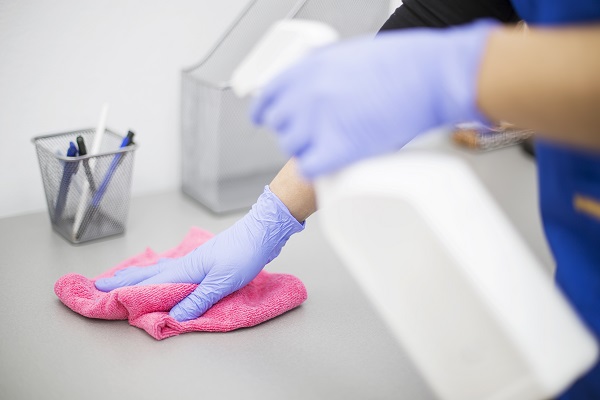Patient FAQs About Dental Office Sterilization

Bacteria, diseases, and viruses can spread rapidly, anywhere and anytime, which is why dental office sterilization is so important. Dental offices can be breeding grounds for this spread, as the oral cavity contains a lot of bacteria. However, with the right sterilization practices, dental offices can ensure a safe, clean, and healthy space for everyone to get their teeth and gums cared for.
Understanding dental office sterilization
Outlined below are some frequently asked questions and answers about how dental offices are sterilizing appropriately. Review this information when curious about dental office practices.
1. How is dental office sterilization done?
Dental office sterilization is done in a number of ways. Each office has its own practices; however, generally speaking, they are similar. Outlined below are a few methods used.
- Spray down all surfaces with antibacterial spray
- Use antibacterial wipes to clean surfaces when a spray is not accessible
- Ensure that all staff members wear gloves
- Require staff and patients to use hand sanitizer and wash hands with soap frequently
- Sterilize all dental tools after each use
2. Why is dental office sterilization important?
Dental office sterilization is important because it protects the entire staff, as well as all patients. Without protection, both parties are at risk of catching or spreading illnesses or diseases. Aside from being at risk of catching or spreading germs, it is also helpful as it keeps the practice in cleaner shape overall.
3. How often are dental offices sterilized?
Dental offices are sterilized after each patient comes and goes. Typically, this sterilization is just of the chair that was sat in and any instruments that were used. However, at the end of each business day, a cleaning team will also come into the dental office to thoroughly sterilize the entire place. This includes the front desk, doorknobs, bathrooms, dental chairs, and all instruments/tools that are used.
4. Is there a wrong way to sterilize dental offices?
Absolutely not! Knowing how to navigate through the sterilization process can be quite difficult. A lot of it is trial and error to see what is most effective while being the easiest to execute. What is most important is that all surfaces get thoroughly cleaned to ensure as close to 100% sterilization as possible.
5. Who performs dental office sterilization?
Everyone should abide by dental practice sterilization protocols; however, not all are responsible for performing it. Some offices have people dedicated solely to performing sterilization, while others may require that all staff members sterilize after interacting with a patient.
Find out more about dental office sterilization
The importance of dental office sterilization is far greater than what gets discussed. Without these sterilization practices, dental offices, the staff, and patients are at risk of spreading germs. Thankfully, each practice is equipped with its own sterilization methods. To learn more about sterilization or preventing the spread of germs, reach out today. Our team can go over any questions or concerns, or get you scheduled for an appointment.
Request an appointment here: https://stonecanyondental.com or call Stone Canyon Dental at (972) 996-3191 for an appointment in our Sunnyvale office.
Check out what others are saying about our services on Yelp: Read our Yelp reviews.
Recent Posts
A healthy, complete smile is not only about looking good but is also important for your overall well-being. Dental bridges can help restore the appearance and function of your teeth. However, common misconceptions about these replacement options can prevent people from understanding their benefits. Let us debunk some common myths about dental bridges.While dental bridges…
When a dental emergency hits, it is important to know where to go to access the right care. An emergency dentist is often the right provider, although life-threatening emergencies require a trip to the emergency room. Learning when to go to the emergency dentist versus the emergency room can save you time, money, and discomfort.…
Curious about dental bridges? Read on to learn more about this type of restoration. The aftermath of tooth loss can be a struggle. The loss puts extra pressure on the rest of the teeth and chewing becomes less effective. Your speech gets affected too. Fortunately, dental bridges lay out a path to restoring the look…
When the smile is missing a tooth or three, a general dentist may recommend dental bridges to restore its appearance and functionality. Even a single missing tooth can cause difficulties with eating and speaking. It also leaves room for the remaining teeth to shift, leading to a misaligned bite. While traditional and implant-supported dental bridges…







